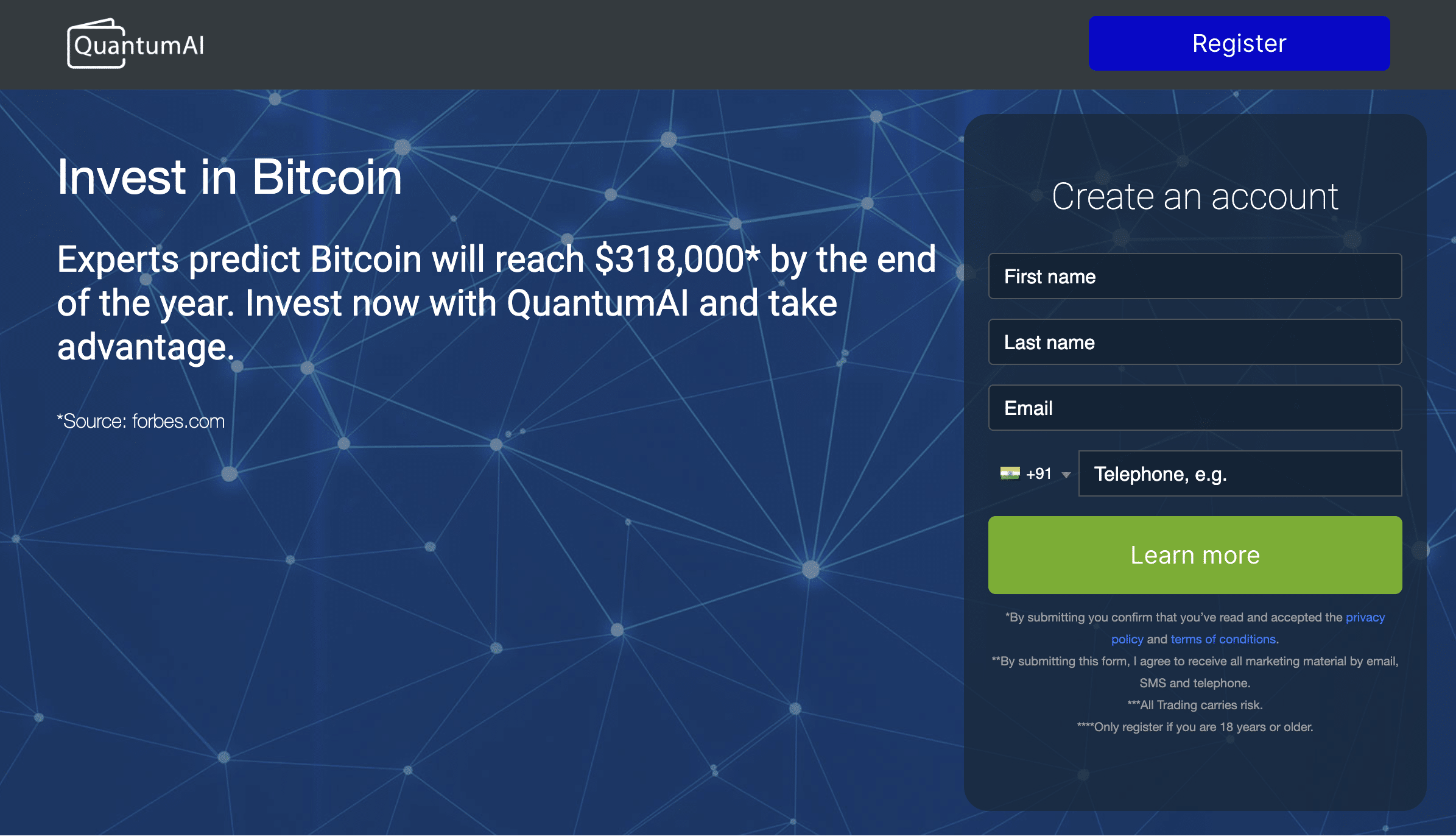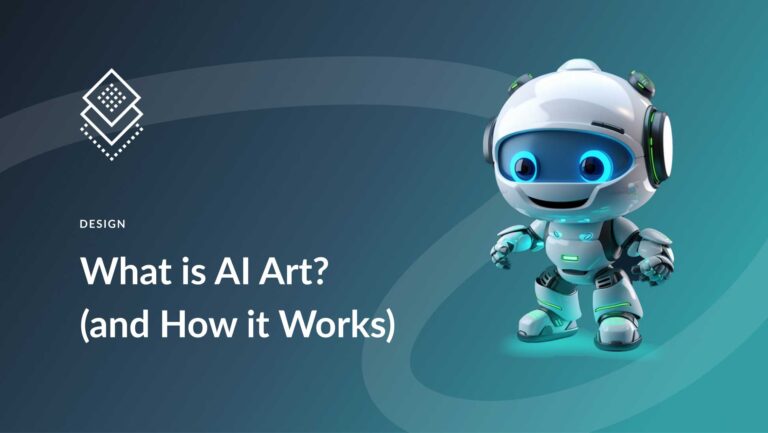Quantum AI combines quantum computing and artificial intelligence to solve complex problems more efficiently than classical methods. This emerging field holds promise for various applications.
Quantum AI leverages the principles of quantum mechanics to enhance the capabilities of artificial intelligence. It accelerates computations, making it possible to solve problems that are currently unsolvable by traditional computers. This technology can revolutionize fields like cryptography, optimization, and drug discovery.
Quantum AI operates by using qubits, which can represent multiple states simultaneously, unlike classical bits. This allows for parallel processing on a massive scale. As research progresses, Quantum AI could lead to breakthroughs in machine learning, natural language processing, and predictive analytics, offering significant advantages over conventional AI approaches.

The Convergence Of Quantum Computing And Ai
The convergence of Quantum Computing and Artificial Intelligence (AI) is revolutionizing technology. This powerful union holds the potential to transform industries. Quantum computing’s immense computational power enhances AI’s capabilities significantly.
AI can process vast datasets more efficiently with quantum computing. This synergy promises groundbreaking advancements in multiple fields.
The Basics Of Quantum Computing
Quantum computing uses quantum bits or qubits. Unlike classical bits, qubits can be 0 and 1 simultaneously. This property is called superposition.
Qubits also exhibit entanglement. This means qubits can be interconnected. Changes in one qubit affect others instantaneously.
These properties enable quantum computers to solve complex problems quickly. They outperform classical computers in many tasks.
Artificial Intelligence: A Brief Recap
AI mimics human intelligence. It uses algorithms to learn from data. AI can recognize patterns and make decisions.
AI applications are diverse. They include natural language processing, image recognition, and autonomous vehicles. AI systems improve over time with more data.
Machine learning and deep learning are subsets of AI. They involve training models to perform specific tasks.
Quantum Ai In Action
Quantum AI combines quantum computing and artificial intelligence. This combination holds great promise. It aims to solve problems that classical computers cannot handle. Quantum AI can revolutionize various fields. Let’s explore its current applications and potential future uses.
Current Applications
Quantum AI is already making waves in various sectors. Some notable applications include:
- Drug Discovery: Quantum AI helps identify new drugs faster. It simulates molecular interactions more accurately.
- Financial Modeling: It improves risk assessment and trading strategies. Quantum AI processes complex financial models efficiently.
- Optimization Problems: Quantum AI optimizes logistics and supply chain management. It finds the best routes and schedules.
- Cryptography: It enhances security through quantum encryption. This makes data transmission more secure.
Potential Future Uses
The future of Quantum AI holds endless possibilities. Here are some potential uses:
- Climate Modeling: Quantum AI can predict weather patterns better. It helps in understanding climate change impacts.
- Artificial Intelligence: It enhances machine learning algorithms. Quantum AI can train AI models faster and more accurately.
- Healthcare: Personalized medicine becomes a reality. Quantum AI analyzes genetic data for tailored treatments.
- Space Exploration: It aids in solving complex space navigation problems. Quantum AI can optimize mission planning.
| Sector | Current Applications | Potential Future Uses |
|---|---|---|
| Pharmaceuticals | Drug Discovery | Personalized Medicine |
| Finance | Risk Assessment | Advanced Trading Strategies |
| Logistics | Supply Chain Optimization | Autonomous Delivery Systems |
| Security | Quantum Encryption | Secure Communication Networks |
Breaking Down Quantum Ai
Quantum AI combines quantum computing and artificial intelligence. This fusion opens new possibilities. It promises faster and smarter solutions. Let’s explore what makes Quantum AI so unique.
Key Components
Quantum AI has several key components:
- Quantum Bits (Qubits): Qubits are the basic units of quantum information. Unlike classical bits, they can be both 0 and 1 simultaneously.
- Quantum Algorithms: These are special algorithms designed for quantum computers. They solve problems faster than classical algorithms.
- Quantum Entanglement: This phenomenon allows qubits to be linked. Changes to one qubit affect the others instantly.
- Superposition: Qubits can exist in multiple states at once. This allows for parallel computation, increasing processing power.
- Quantum Gates: These are the building blocks of quantum circuits. They manipulate qubits to perform computations.
How Quantum Ai Differs From Classical Ai
Quantum AI and classical AI have several key differences:
| Aspect | Quantum AI | Classical AI |
|---|---|---|
| Data Processing | Processes data in parallel. | Processes data sequentially. |
| Speed | Much faster due to superposition. | Limited by classical hardware. |
| Complex Problem Solving | Handles complex problems efficiently. | Struggles with complex problems. |
| Scalability | Highly scalable with more qubits. | Limited scalability. |
Quantum AI offers significant advantages over classical AI. Its ability to process data in parallel is game-changing. It solves complex problems faster and more efficiently.

The Power Of Quantum Algorithms
Quantum AI combines quantum computing with artificial intelligence. This fusion promises to revolutionize numerous fields. The power of quantum algorithms lies in their ability to process information in ways classical computers cannot. Let’s explore this through speed and efficiency gains and challenges in algorithm development.
Speed And Efficiency Gains
Quantum algorithms can solve problems much faster. Classical computers solve problems step-by-step. Quantum computers use qubits, which can represent multiple states at once. This allows for parallel processing. Speed and efficiency gains are immense.
For example, Grover’s Algorithm speeds up database searches. A classical computer searches linearly. Quantum computers search in square root time. This means a search that takes 100 steps on a classical computer can take only 10 steps on a quantum computer.
| Problem | Classical Time | Quantum Time |
|---|---|---|
| Database Search | O(N) | O(√N) |
| Factoring Large Numbers | Exponential | Polynomial |
Challenges In Algorithm Development
Developing quantum algorithms presents unique challenges. Quantum systems are highly sensitive. Any disturbance can cause errors. This is known as quantum decoherence. Ensuring stability is a significant hurdle.
Programming quantum computers is also different. Classical programming languages don’t work. Quantum programming languages, like Q#, are still developing. This makes it hard for many to learn and use.
Another challenge is the error correction. Quantum computers need error correction for reliable results. Classical error correction methods don’t apply. New methods are required, adding to the complexity.
Despite these challenges, the potential of quantum algorithms is vast. They hold the promise of solving problems that are currently impossible. As technology advances, these hurdles will likely be overcome.
Machine Learning Meets Quantum
Machine learning is advancing rapidly. Quantum computing is a new frontier. Combining both offers exciting possibilities. This fusion is known as Quantum AI. It promises to transform how we analyze data and solve problems.
Quantum-enhanced Machine Learning
Quantum-enhanced machine learning uses quantum computers. These computers process data faster. They solve complex problems easily. Traditional computers struggle with these problems.
Quantum algorithms can handle large datasets. This ability is vital for modern machine learning. It enables better predictions and insights. Machine learning models become more accurate.
Implications For Data Analysis
Data analysis benefits greatly from quantum AI. Quantum computers can process massive amounts of data quickly. This speed is crucial for real-time data analysis.
Quantum AI can uncover hidden patterns in data. It identifies relationships that traditional methods miss. This leads to better decision-making and forecasting.
| Traditional Machine Learning | Quantum-enhanced Machine Learning |
|---|---|
| Processes data sequentially | Processes data in parallel |
| Limited by classical algorithms | Leverages quantum algorithms |
| Handles smaller datasets | Handles large and complex datasets |
- Faster data processing
- Improved accuracy
- Better insights and predictions
- Gather large datasets
- Apply quantum algorithms
- Analyze results
Quantum AI is a game-changer. It will revolutionize data analysis and machine learning. The future of technology is bright with quantum computing.

The Impact On Industries
Quantum AI is transforming many industries. It offers solutions that were once impossible. This technology uses quantum computing to enhance artificial intelligence. Below, we explore its impact on healthcare and finance.
Healthcare Revolution
The healthcare industry is benefiting immensely from Quantum AI. It allows for quicker and more accurate disease diagnosis. Doctors can now predict patient outcomes more effectively. This technology also helps in drug discovery. It can simulate molecular interactions much faster than traditional methods.
Quantum AI enables personalized treatment plans. Doctors can analyze vast amounts of data quickly. This leads to more effective treatments tailored to individual needs. Below is a table showing Quantum AI applications in healthcare:
| Application | Benefit |
|---|---|
| Disease Diagnosis | Quicker and more accurate |
| Drug Discovery | Faster molecular simulations |
| Personalized Treatment | Tailored to individual needs |
Advancements In Finance
Quantum AI is also revolutionizing the finance industry. It enhances risk assessment and management. Financial institutions can now process complex calculations in seconds. This leads to more accurate financial models.
Fraud detection is another area where Quantum AI excels. It can analyze transaction data in real-time. This helps in identifying fraudulent activities quickly. Below is a list of Quantum AI applications in finance:
- Risk Assessment: Improves accuracy and speed
- Financial Modeling: More precise predictions
- Fraud Detection: Real-time analysis of transactions
Ethical And Societal Considerations
Quantum AI brings incredible potential but also many challenges. The technology could transform many aspects of our lives. It is essential to address the ethical and societal concerns. This section explores two key areas: privacy and security, and the future workforce.
Privacy And Security Concerns
Quantum AI can process vast amounts of data. This raises significant privacy and security concerns. Quantum computing could break current encryption methods. Sensitive information could be at risk.
Organizations must develop new encryption techniques. Quantum-safe encryption is necessary to protect data. Table below shows the differences between current and quantum-safe encryption methods:
| Encryption Method | Current Security Level | Quantum Security Level |
|---|---|---|
| RSA | High | Low |
| Quantum-safe encryption | High | High |
Users must stay informed about data protection. Organizations must ensure they follow the latest security practices. This is crucial to maintain trust and safety.
The Future Workforce
Quantum AI could change the job market. Some jobs may disappear. New roles will emerge. Preparing for these changes is essential.
Here are some potential impacts on the workforce:
- Job displacement in repetitive tasks
- New opportunities in tech and quantum computing
- Need for retraining and upskilling
Education systems must adapt to these changes. Incorporating quantum computing in curriculums is important. This will ensure future generations are ready for new job opportunities.
Businesses should invest in employee training. This will help them stay competitive and ensure a smooth transition.
Preparing For A Quantum Ai Future
The world is on the brink of a technological revolution. Quantum AI promises to change everything. To thrive in this new era, we need to prepare now. Let’s explore how.
Education And Skills Development
Education is the cornerstone of adapting to Quantum AI. Schools and universities need to update their curricula. They should include courses on quantum computing and AI.
- Introduce basic quantum computing concepts in high school.
- Offer specialized quantum AI courses in universities.
- Encourage students to pursue STEM fields.
Online courses and workshops can help professionals upgrade their skills. Companies should invest in employee training programs. This ensures a workforce ready for Quantum AI challenges.
Policy And Regulation
Governments play a crucial role in shaping the Quantum AI future. They need to create policies and regulations that foster innovation.
| Policy Area | Action Needed |
|---|---|
| Research Funding | Increase funding for quantum AI research projects. |
| Data Privacy | Ensure data privacy with robust regulations. |
| Ethical Guidelines | Develop ethical guidelines for AI use. |
Policymakers should work with tech experts to understand the impacts of Quantum AI. This helps in making informed decisions that benefit society.
Frequently Asked Questions
Is Quantum Ai Legit?
Quantum AI’s legitimacy is uncertain. Research thoroughly before investing. Check user reviews, regulatory status, and expert opinions.
How Do I Start Quantum Ai Trading?
To start Quantum AI trading, research platforms offering Quantum AI, register, fund your account, and begin trading. Ensure you understand the risks.
How Much Do You Have To Invest In Quantum Ai?
The minimum investment for Quantum AI varies. Start with $250, but check the platform for specific requirements.
What Are The Negatives Of Quantum Ai?
Quantum AI has high costs and complex technology. It faces security risks and lacks standardization. Limited expertise and ethical concerns also exist.
Conclusion
Quantum AI combines quantum computing and artificial intelligence. This fusion promises faster data processing and problem-solving capabilities. As technology advances, Quantum AI could revolutionize multiple industries. Embrace its potential and stay informed. The future of technology looks bright with Quantum AI leading the way.





